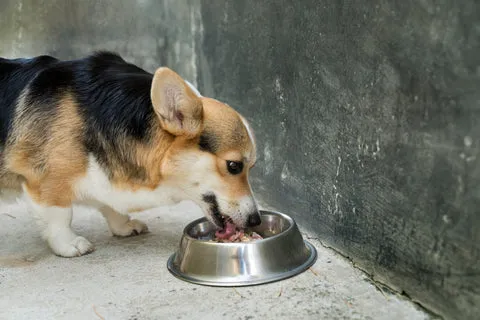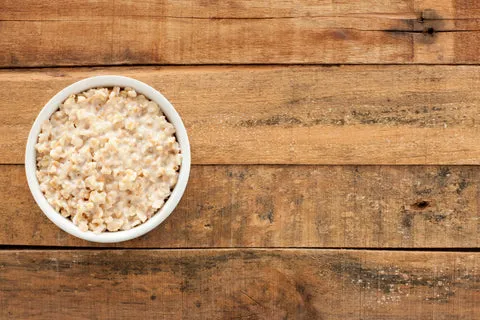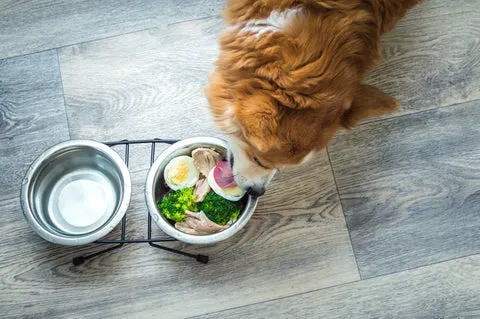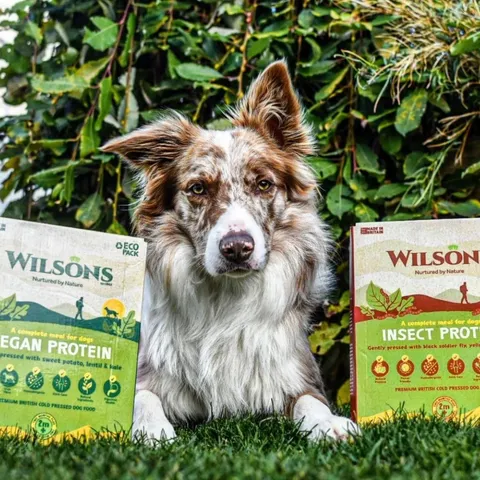When your beloved canine companion isn’t feeling well, their once-robust appetite can often disappear. Just like humans, dogs frequently go off their regular food when they have an upset stomach or are feeling under the weather. As a dedicated pet parent, it’s natural to worry about what you can offer them to eat that will be gentle on their digestive system while still providing essential nutrients. Feeding your dog the right kind of food during illness is crucial, as it helps to boost their energy levels and can significantly support their recovery process. Understanding what foods are safe and beneficial is key to nursing your furry friend back to health when they are sick.
Knowing what you’re what are you not supposed to feed your dog is just as important as knowing what to offer. This guide will help you navigate the best dietary choices for your dog during challenging times, ensuring they receive the care and nourishment they need.
What to Feed a Sick Dog
It’s completely normal to feel concerned about what to feed your dog when they are sick. Generally, a plain, bland diet composed of nutritious, easily digestible foods is the best approach for a dog with an upset stomach. Having a few healthy, failsafe options readily available can help you be prepared for unexpected turns in your dog’s health. While these suggestions can be incredibly helpful, it’s always recommended to consult your veterinarian for further advice if your dog’s illness persists or worsens. Here are ten of the most nutritious and gentle food options for dogs experiencing digestive issues:
1. Boiled White Meat
Plain white meat, such as chicken or turkey breast, is an excellent choice for a sick dog due to its ease of digestion and low-fat content. Providing lean protein, chicken or turkey can help soothe your dog’s stomach and provide necessary energy. It’s crucial to always remove any skin or bones from the meat before feeding it to your dog. This eliminates the risk of choking and makes the meat far gentler on their sensitive digestive system.
To prepare the meat safely and effectively for your dog, follow these simple steps: First, rinse the meat thoroughly under cold water to ensure cleanliness. Next, carefully remove any excess fat, skin, or bones. Place the prepared meat in a pot and cover it with water. Bring the water to a boil, then reduce the heat and allow the meat to simmer gently for about 15-20 minutes until thoroughly cooked. Once cooked, drain the water completely and cut the meat into small, bite-sized pieces; this size is ideal for easy digestion. Finally, let the meat cool completely before serving it alone or mixed with white rice or bland vegetables.
 A Chihuahua patiently waiting for its food
A Chihuahua patiently waiting for its food
2. White Rice
Both white and brown rice are common ingredients in many commercial dog foods, making them a familiar and often successful option when your dog is feeling unwell. While brown rice offers more nutritional benefits for healthy dogs, the blandness of white rice makes it a much safer and more digestible choice for a sick dog’s sensitive stomach. Its simple carbohydrate structure is less likely to irritate an already upset digestive system.
White rice can be particularly beneficial if your dog is experiencing diarrhea, as its binding properties can help solidify their stools and aid in restoring normal digestive function. To prepare white rice for your dog, begin by rinsing it under cold water to remove excess starch. Add the rinsed rice to a large pan, then add two parts water to one part rice. Bring the mixture to a boil, adding a small, generous pinch of salt (ensure it’s not excessive). Reduce the heat to a simmer, cover the pan with a lid, and let the rice cook on low heat for approximately 18 minutes, or until all the water has been absorbed. Once cooked, allow it to rest and cool slightly, then fluff with a fork before serving.
 A Border Collie looking at its food bowl
A Border Collie looking at its food bowl
3. Sweet Potatoes
Plain, thoroughly cooked sweet potatoes are a fantastic addition to a sick dog’s diet. They are naturally rich in essential vitamins and dietary fiber, making them incredibly gentle on the stomach and an excellent choice for soothing both the stomach and intestines. Sweet potatoes can significantly improve your dog’s overall health by supplying vital nutrients such as calcium, iron, and magnesium, which are crucial for recovery.
It is very important never to feed your dog raw sweet potatoes, as their uncooked form is much harder to digest and could exacerbate an already upset stomach. Instead, always peel the skins, chop the potatoes into manageable chunks, and add them to a pan of boiling water. Boil them until they are very soft and easily mashable. Once cooked, drain the water, mash the potatoes thoroughly, and allow them to cool completely before serving them to your dog. This ensures they are both palatable and safe for consumption.
 Slices of cooked sweet potato on a wooden table
Slices of cooked sweet potato on a wooden table
4. Pumpkin
Similar to sweet potatoes, plain pumpkin is remarkably effective in alleviating an upset stomach and helping a sick dog feel better. Pumpkins are not only packed with vitamins that help boost your dog’s immune system, but they are also full of fiber, which plays a critical role in regulating digestion. This makes them a dual-action food, both nourishing and soothing for the digestive tract.
You can offer your dog up to four tablespoons of plain pumpkin with their regular meal, or alongside other bland foods like chicken and rice, to aid their recovery. Canned pumpkin can be just as effective as fresh, provided it contains no added sugar, spices, or other ingredients. It is crucial to avoid any seasonings, especially sugar or pumpkin pie spices, as these can further upset your dog’s stomach and potentially be harmful. Always opt for 100% pure canned pumpkin.
 A Husky with a pumpkin slice cut into a smile shape
A Husky with a pumpkin slice cut into a smile shape
5. Homemade Bone Broth
Bone broth is a wonderfully beneficial option for sick dogs because it provides essential nutrients and minerals like sodium and potassium, which can be particularly helpful during recovery. Furthermore, it significantly aids in hydration, which is vital for any dog suffering from illness. When preparing bone broth, it’s essential to avoid using garlic or excessive amounts of salt, as these ingredients can further upset your dog’s stomach or even be toxic.
Being low in carbohydrates, bone broth is an excellent and gentle choice for sick dogs with an upset stomach, as it is incredibly easy to digest. You can prepare your dog’s bone broth by following these simple steps: Combine beef or pork marrow bones with chicken or turkey bones in a large cooking pot. Cover the bones with a few inches of water and cook on very low heat for an extended period, typically 20-24 hours. Once the cooking process is complete, strain the mixture thoroughly to remove all bones and solids, then serve the liquid once it has cooled. This nourishing broth can be given alone or mixed with other bland foods.
 A puppy licking from a bowl of what appears to be soup or broth
A puppy licking from a bowl of what appears to be soup or broth
6. Baby Food
For puppies struggling with an upset stomach, stage 2 meat-based baby foods such as those made from chicken, lamb, or turkey can be an effective and gentle feeding choice. If you decide to feed baby food, it is absolutely essential to carefully check the ingredients list to avoid any additives that could be toxic to dogs, such as garlic or onion powder. These ingredients, commonly found in human foods, are highly dangerous for canines.
Baby food is generally very easy for young dogs to chew and digest, making it a suitable option for treating stomach upset and diarrhea. Its smooth consistency and mild flavor can be appealing to puppies who are reluctant to eat. However, if you have any doubts or concerns about specific ingredients in your chosen baby food, always consult your veterinarian for further advice and recommendations to ensure your puppy’s safety and well-being.
7. Fish
Fish serves as an excellent source of healthy fats, particularly omega-3 fatty acids, and a variety of vitamins that can work wonders for your dog’s immune system and overall health, especially when they are recovering from a stomach ailment. The rich nutritional profile of fish supports their recovery and provides vital building blocks for their body.
Moreover, the naturally strong smell of fish can often be a powerful enticement, encouraging your dog to eat after they have lost their appetite due to illness. The best and safest way to prepare fish for your dog is by poaching it. Similar to boiling chicken, add the fish to a pan of water, bring it to a boil, then reduce the heat and simmer for 10-15 minutes until it is fully cooked and flaky. Crucially, before feeding, ensure all bones are meticulously removed, and then cut the fish into small, easily digestible pieces for your dog.
 A Corgi enthusiastically eating from its bowl
A Corgi enthusiastically eating from its bowl
8. Oatmeal
Plain, cooked oatmeal, made from rolled oats, can be a soothing and beneficial food for a dog with an upset stomach. It is notably high in soluble fiber, which can help alleviate constipation and promote healthy bowel movements. Furthermore, oatmeal contains valuable antioxidants that are ideal for reducing inflammation in the stomach lining, contributing to overall digestive comfort and healing.
While feeding oatmeal is generally good, it’s important not to overdo it. Oatmeal is very fibrous, and consuming too much could potentially exacerbate your dog’s stomach issues or lead to further discomfort. Therefore, introduce it sparingly and in small amounts to observe how your dog reacts. Start with a small portion and gradually increase it if your dog tolerates it well and shows improvement.
 A bowl of cooked oatmeal on a wooden table
A bowl of cooked oatmeal on a wooden table
9. Yogurt
Plain yogurt, specifically varieties that are full of probiotics and completely free of any additional sweeteners or artificial ingredients, is an ideal food for a dog with an upset stomach. The beneficial probiotics in yogurt can significantly aid digestion and support a healthy gut microbiome, which is crucial for recovery. If your dog is experiencing constipation, plain yogurt can effectively help to regulate their digestive system and promote more regular bowel movements.
Plain, natural yogurt is widely available and easy to source from most local stores or supermarkets, making it a convenient option if your dog suddenly becomes ill. Its creamy texture and mild taste are often appealing to dogs. Additionally, it can even be frozen and served as a cool, soothing treat on a warm day, offering both nutritional benefits and a refreshing sensation. However, always ensure it is truly plain and unsweetened.
 A puppy with some yogurt on its beard, looking playful
A puppy with some yogurt on its beard, looking playful
10. Eggs
Provided your dog is not actively vomiting, eggs are an excellent and highly recommended food choice for a sick canine. They are remarkably gentle on the stomach, making them easy to digest even when your dog’s system is sensitive. Furthermore, eggs are a fantastic source of high-quality protein, which is vital for rebuilding tissues and supporting overall recovery.
Eggs also serve as a great energy booster, which can be particularly beneficial if your dog is feeling a little lethargic or weak after an illness. The best ways to prepare eggs for your dog to ensure they are gentle on its stomach are scrambled without any butter or oil, or simply boiled. However, if your dog is still actively vomiting, it is best to avoid feeding them eggs completely until the vomiting subsides. For more details on what to offer, consider what specific what to give sick dog to eat is recommended by vets.
 A dog eating eggs and vegetables from its bowl
A dog eating eggs and vegetables from its bowl
Special Considerations for Dogs with Allergies
If your dog frequently suffers from an upset stomach, recurring sickness, or skin issues, it may be worthwhile consulting your veterinarian to determine if they are experiencing food-related or breed-specific allergies. These persistent symptoms often point to underlying dietary sensitivities. Addressing allergies can significantly improve your dog’s quality of life and reduce instances of digestive upset. Understanding what are foods that dogs can t eat can help guide you away from potential allergens.
While conventional kibble can sometimes be problematic for sensitive dogs, there are many alternative dog food options designed to be gentle on sensitive tummies and suitable for dogs with various food allergies. These alternatives focus on different processing methods and protein sources to minimize allergic reactions.
Cold Pressed Dog Food
Cold pressed dog food presents a valuable alternative to traditional kibble, especially for dogs suffering from food-related allergies. This form of dry food undergoes minimal processing at a significantly lower temperature than conventional kibble. Consequently, it retains a much greater nutritional value, as delicate nutrients are not destroyed by high heat.
Due to its unique manufacturing process, cold pressed dog food is easily broken down in the digestive system, which is ideal for sensitive stomachs. Designed with improved all-around health in mind, it aids digestion effectively and breaks down at a similar rate to raw food. This characteristic makes it easy to feed alongside a raw diet if you choose a mixed feeding approach. Available in a variety of protein sources, including white fish, salmon, and chicken, cold pressed food can be a perfect choice for maintaining your dog’s health and happiness. Many brands also offer grain-free options, which are excellent for dogs with grain-related allergies, providing nutritionally dense food that won’t upset their sensitive digestive systems.
 A happy dog with a bag of cold pressed dog food
A happy dog with a bag of cold pressed dog food
Insect Protein Dog Food
Complete and nutritionally balanced insect protein dog food is crafted using similar gentle processing methods as meat-based cold-pressed options, utilizing lower temperatures to preserve vital nutritional value and aid digestion. This innovative food source offers a sustainable and hypoallergenic alternative for pet owners.
Insects often contain a higher protein content than traditional sources like chicken or beef, ensuring that your dog receives all essential nutrients without compromise. Furthermore, insects are naturally hypoallergenic and typically low in purines, making them an ideal food source for dogs with sensitivities or meat-related allergies. Insect protein dog food breaks down efficiently in the digestive system, much like meat-based options, allowing it to be fed alone or seamlessly integrated into a raw food diet.
 A Collie dog with a bag of insect protein dog food
A Collie dog with a bag of insect protein dog food
Raw Frozen Dog Food
If your dog is particularly fussy with their current kibble or displays sensitivities, transitioning to a raw food diet can be an excellent way to change their nutritional intake. Raw food diets are typically made from natural ingredients that have been minimally processed and are often grain-free, which aids digestion and can lead to significant improvements in coat health, skin condition, and overall well-being.
Raw frozen dog food often comes in various formulations to cater to specific needs. For example, some options provide an 80/10/10 mix (80% meat, 10% offal, 10% bone), offering a balanced base. Other premium raw foods might include a 70/10/10/10 mix with added vitamins and minerals, giving you the flexibility to mix with your own choice of vegetables or supplements. This allows for tailored diets that can address your dog’s specific allergies or nutritional requirements, making it easier than ever to customize their meals.
 A dog eating raw and cold pressed food from separate bowls
A dog eating raw and cold pressed food from separate bowls
Supporting Your Dog’s Health and Recovery
When your dog is sick, providing the right nutrition is paramount to their comfort and recovery. From bland, easily digestible options like boiled chicken and white rice to specialized hypoallergenic foods for dogs with allergies, there are numerous ways to support your canine companion through illness. Always remember that while these dietary adjustments can be highly beneficial, persistent or severe symptoms warrant immediate consultation with your veterinarian. They can provide a proper diagnosis and treatment plan tailored to your dog’s specific needs.
At Dog Care Story, we are committed to helping you provide the best care for your furry family members. Explore more of our articles on canine health and nutrition to ensure your dog lives a happy, healthy life! For example, you might be interested in what foods should you never feed a dog to proactively avoid common pitfalls.
